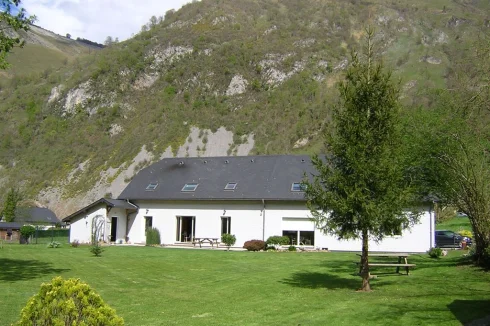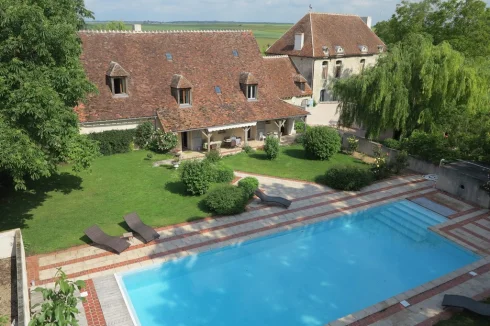Confusion Over Septic Tank Rules
Thursday 04 December 2014
In recent years there has been a major overall of the regulations concerning the installation and control of local sewerage systems, but implementation has yet to catch up with the law.
Over 5 million households in France use a stand-alone waste disposal system (l’assainissement non collectif - ANC), due to the fact that they are not connected to mains drains.
Not surprisingly, those most affected are owners of rural properties, ergo, many international owners of French property.
Over the past few years there have been significant developement in the regulatory framework and the industry, but for regulators and households alike, the rules are complex, enforcement is decentralised, the skills of the professionals engaged to install and to supervise very mixed, and the range of products on the market is vast.
The current legal framework for such systems dates from an Arrêté 2009, when a major overall of the technical requirements and control processes was undertaken.
This was later modified in 2012 by a regulation that sought to introduce a degree of pragmatism into the whole process, and to get a more uniform approach to inspection and control of installations.
Crucially, the 2012 update gave priority to control and improvement of existing installations on the occasion of the sale of a property.
As part of the sale process of a French property local sewerage systems are subject to an obligatory statutory survey. It is not unusual for sale completion to turn on the outcome of the survey, for if it does not comply the new owner is only granted a year in which to bring it up to standard.
The compliance period is increased to 4 years when the problem is found as part of the routine inspection cycle, a process which cannot be less than once every 10 years, more if the local authorities consider there may be a risk to health or the environment.
In practice, enforcement of the regulations is generally not as draconian as folklore suggests, and it is only necessary to renew an installation where it presents a health risk to the occupants of the property or it pollutes the environment, risks that are defined in law.
Nevertheless, anything from between €5,000 to €15,000 will be required to install a new septic tank (fosse septique), so it is a significant financial outlay.
Some councils offer assistance towards the installation costs of a new septic tank, and an interest free loan (Éco-prêt à taux zéro - Éco-PTZ) is also available at a national level. This loan is not subject to means testing and is well worth considering for those who need to upgrade their septic tank.
The statutory inspections are carried out under the auspices of the Service Public de l'assainissement non collectif (SPANC), who are delegated bodies of a commune or a group of communes.
Although all councils have a legal obligation to set up a SPANC, there is yet to be universal coverage across the country, with the result that in around 10% of communes the inspections have not been carried out.
Where they are carried out, there have been variations in the frequency of inspections, large variations in the charge for the inspections, differences in the collection procedures for the charge, and the adoption of different standards of compliance and upgrading work.
In an attempt to introduce greater uniformity, last month the government published a new 80 page guidance manual for SPANCs, which offers an interpretation of the regulations and the practices that should be adopted. It is a useful primer for households who wish to be more informed.
If you have a decent command of the French language and some technical knowledge, a great source of advice and information is the official government website for autonomous systems of waste disposal.
With the tightening of the regulations there has been a significant increase in the number of local sewerage systems onto the market and the choice for the consumer is now quite bewildering.
Neither is the profession of installer or designer of systems regulated in any way, with the result that it is possible for anyone to claim they are a 'professional'.
So choosing your system and your installer is rarely a straightforward matter. Selecting on the basis of the cheapest price is always risky, but the official list of approved systems is a useful reference point against which to check estimates and make comparisons.
At a national level, no ground condition survey (étude de sol) is obligatory for the installation of a septic tank on an existing property, but locally a SPANC can, and usually does, insist on one being carried out prior to a new installation. A survey is, however, mandatory as part of the planning process for a new dwelling that is to be served by a local sewerage system.
Arthur Cutler of planning consultancy French Plans states that, "A property with an existing system may also need to have it upgraded in the event of an increase in the level of accommodation following an extension or attic conversion for example, with a requirement for a pre-installation report and approval as part of the planning application process."
Some installers offer a survey service, which is also provided by independent bureau/cabinet d’études d'assainissement. There exists an official association of consultants at SYNABA (Syndicat National des Bureaux d'études en Assainissement), but the association does not have comprehensive membership across the country. It is a relatively new industry.
One approach to procurement is to also approach your local SPANC, to whom you are obliged to submit a Demande d'Installation d'un Dispositif d'Assainissement Autonome (DIDAA). They will need to formally approve the installation, and they will know the local market, so are probably in the best position to advise. However, not all are so cooperative as to have a list of suitable suppliers or to recommend one.
The installation of a septic tank system is governed by a ten year building guarantee, but not all installers carry the requisite insurance, so make sure you check out their insurance certificate with care, ensuring that it is also up-to-date by the time the installation work is carried out. The same 10 year insurance obligation applies to those who undertake the pre-installation survey work.
Be careful of anyone turning up on your doorstep to undertake an inspection of the septic tank, claiming they are from the council or acting on behalf of them. Always ask for their credentials, and never pay directly.
Next Article: Advertise Your Property at A Place in the Sun Live
Thank you for showing an interest in our News section.
Our News section is no longer being published although our catalogue of articles remains in place.
If you found our News useful, please have a look at France Insider, our subscription based News service with in-depth analysis, or our authoritative Guides to France.
If you require advice and assistance with the purchase of French property and moving to France, then take a look at the France Insider Property Clinic.





